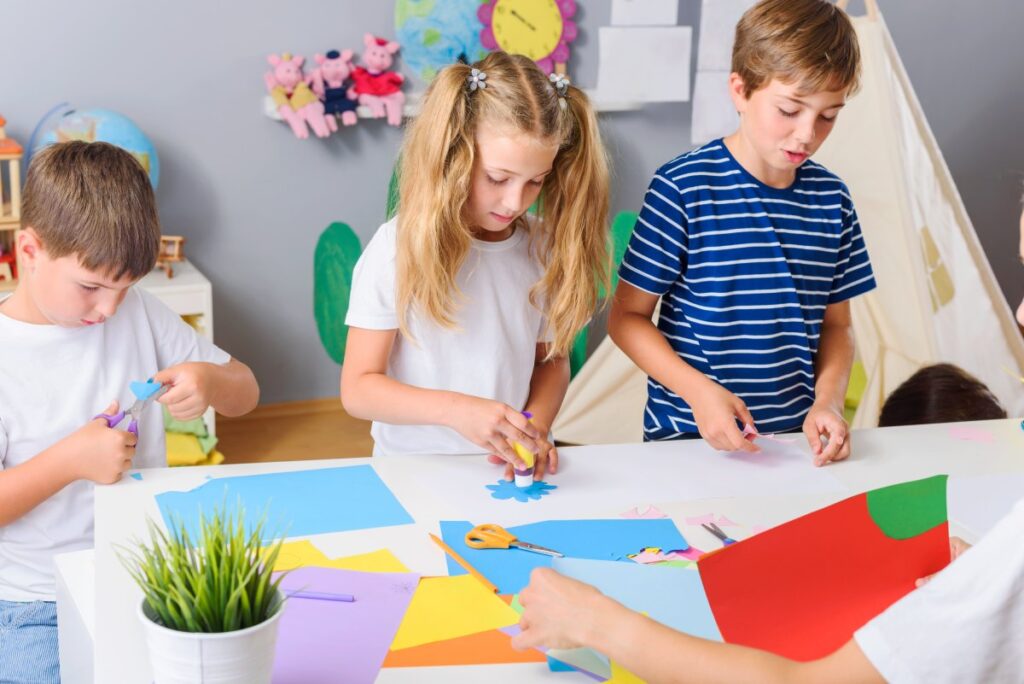Kids’ camps play a vital role in fostering outdoor learning and exploration, offering children unique opportunities that extend far beyond the traditional classroom setting. These camps create an environment where kids can immerse themselves in nature, develop essential life skills, and build lasting memories through hands-on experiences. Unlike conventional education, which often confines learning to textbooks and screens, kids’ camps encourage active engagement with the natural world, promoting curiosity and discovery. This direct interaction with the outdoors helps children develop a deeper appreciation for the environment, understanding ecosystems, wildlife, and the importance of conservation in ways that cannot be fully captured through classroom lessons alone. Outdoor learning at kids’ camps nurtures physical health by encouraging movement and exercise in fresh air, which benefits children’s overall well-being and combats the sedentary lifestyle associated with modern technology use. Hiking, swimming, climbing, and other camp activities promote coordination, strength, and endurance, while also teaching children about their physical limits and how to safely challenge themselves.

Moreover, the unstructured nature of outdoor play allows kids to develop creativity and problem-solving skills as they navigate unfamiliar terrain, build shelters, or participate in team challenges. This kind of experiential learning encourages critical thinking and adaptability, qualities that are invaluable in real-life situations. Social development is another significant advantage of kids’ camps. Being away from home and school routines allows children to build independence and self-confidence. Camps often bring together kids from diverse backgrounds, fostering friendships and teamwork. The cooperative nature of many camp activities teaches communication skills, empathy, and leadership, as campers learn to work together toward common goals. These social experiences help children develop emotional intelligence and resilience, empowering them to navigate challenges both during camp and in everyday life. Additionally, kids’ camps offer a break from technology, which is increasingly important in today’s digital world. Time spent outdoors reduces screen exposure and encourages kids to connect with the physical world around them. This digital detox can improve focus, reduce stress, and enhance mood.
Being in nature also provides mental health benefits by reducing anxiety and increasing feelings of calm and happiness. The colonies nens setting encourages mindfulness and presence, helping children appreciate simple joys like observing wildlife, feeling the sun on their skin, or listening to the sounds of a forest. Furthermore, outdoor learning at camps often integrates environmental education in an interactive and engaging way. Children learn about conservation, sustainability, and the impact of human activities on nature firsthand. This early education fosters environmental stewardship and a sense of responsibility that can influence lifelong habits and attitudes toward the planet. Kids who experience nature in a positive and meaningful way are more likely to become advocates for protecting the environment as they grow older. Kids’ camps are essential for outdoor learning and exploration because they combine physical activity, social growth, mental health benefits, and environmental education in a holistic approach to childhood development. They provide a nurturing space where children can explore the world around them, gain confidence, and develop skills that will serve them throughout their lives. By encouraging hands-on interaction with nature, camps inspire a lifelong love of learning and respect for the environment, making them a valuable part of every child’s growth and education.
You may also like
-
Discover the Truth with Our Trusted Private Detective Service Offering Discreet
-
Do Your Children Need Private Tutors? – Know the Tactics
-
Online Corporate English Training – The Significance
-
How to do the strength training inthe best taekwondo school in singapore?
-
Online Law University Gives a Professional Law Programs